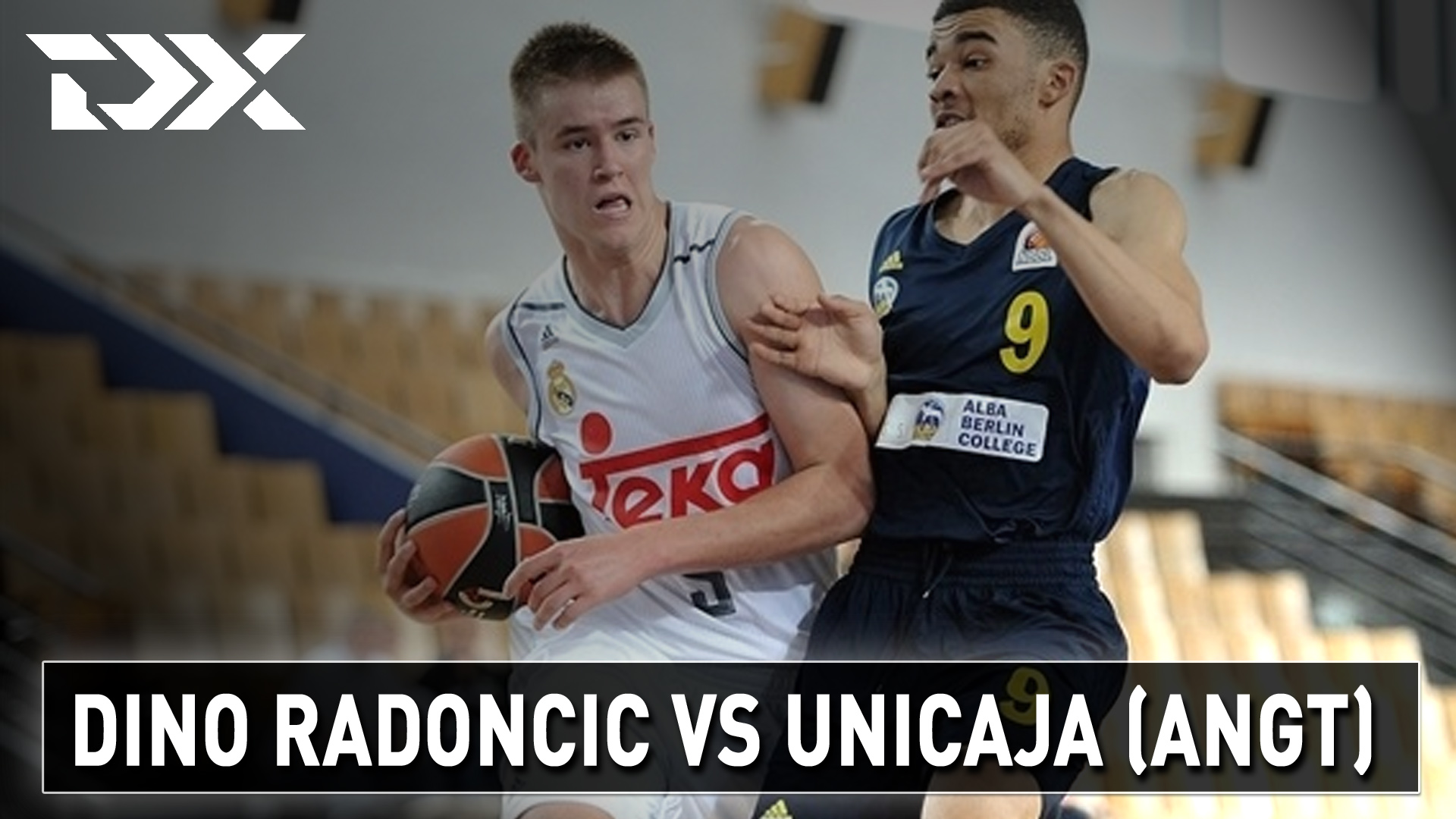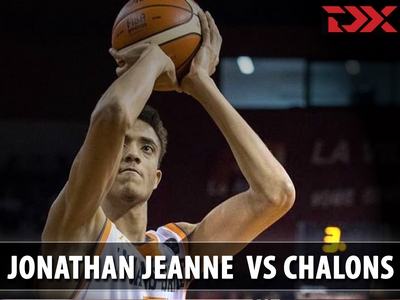Dimitris Ritsonis
Once again on the other side of the Atlantic, the most competitive basketball tournament in the world-- the Eurobasket-- took place as it does every two years.
In a very exciting, yet not as strong and high level ten day period as expected, Greece managed to go all the way for the first time in 18 years. The Greeks took a stressful route during the first rounds, which finally ended with confidence and a sweet taste, after a very strong and undoubtedly superior performance in the final game versus Germany.
Based mostly on a smart defensive game and the constant movement of the team's guards, coach Panayotis Yannakis managed to achieve easy baskets, caused partly by the exceeding performances of Dimitris Diamantidis and the smarts of Theo Papaloukas. Both of these tall point guards, as well as the 22-year old Nikos Zissis handled and delivered the ball well and had the skills to lead the team correctly in the crucial knock out game. The three-guard system that coach Yannakis used most of the time in this tournament, along with a deep and lively bench, the team-game mentality and the heroics of its guards (like Diamantidis' incredible buzzer beater in a memorable semi-final game versus France, or Papaloukas' consistency during the knock out games) helped an overall predictable team in the offensive end to overcome mental barriers, more athletic opponents (Russia in the quarters, France in the semis) and the irrational instability of star center Lazaros Papadopoulos to find the way to finally find their way on top.
The team is young, but experienced, and filled with Euroleague talent. From what we have seen in some exhibition games and the finals against Germany, the new European Champions can play the game in a much more attractive way in the near future.
Team Approach Reigns in Europe
Luis Fernandez
Its pretty obvious for anyone who is a bit familiar with basketball that this is a team game, a shared effort between five guys on court. This holds true for the ones waiting for a chance coming off the bench as well. Its obvious, but its not what always happens.
Individual style and poor understanding of the game can be placed in the way of a real team, having its influence on the final outcome. It happens everywhere, but not always with the same intensity. Particularly in the FIBA world, the benefits of the team game are higher than in the NBA. With a bigger lane, a shorter three-point line and a much more strict interpretation of the traveling rules, the one-on-one game in international basketball is not nearly as productive and effective as it can be in the NBA.
However, the word team is not only a matter of game style, but also about cohesion, chemistry in the roster and the sacrifice of the individual egos for the common benefit.
The Eurobasket has showed once again the team nature of the basketball, the importance of the group over the individual.
The new champions Greece is the first team that comes to mind. Its a squad where you wont find any superstars, not even one NBA player, but an excellent collection of extremely solid Euroleague contributors. Just take into account that the top scorer of the team, Nikos Zisis, barely averaged 10 points per game, while the team played some of the best defense seen in the tournament.
Furthermore, the leaders of this team are all solid distributors. Particularly the magnificent guard duo formed by Theodoros Papaloukas and Dimitris Diamantidis, two floor generals who operate on the court like extensions of the coach. Even center Lazaros Papadopoulos, bound to play a key role in this team but disappointing in the end, is a nice distributor from the low post.
Greece represents the unselfish type of basketball team, where the responsibilities on the court are rather equally distributed; even if there are leaders (its almost impossible not to have them). But this not the only possible model. Germany showed what a committed superstar like Dirk Nowitzki, surrounded by an incredibly working and sacrificed supporting cast, can do. Everybody here knew his role and executed it to perfection. Team matters in attitude as much as in game style.
Of course, this one-man show, as well supported as it could be, has limited potential, which Greece made sure to expose in the final. This European Championship hasnt been the best in the last years, and certainly Germany benefited from it.
Nevertheless, much more talented squads fell much lower lacking the chemistry and clear role-distribution of the Germans. The best example was the hosts, Serbia and Montenegro. This bunch has suffered a continuous battle of egos that even such a tough and prestigious coach as Obradovic wasnt able to stop. Jaric, Rakocevic, Radmanovic and Tomasevic have been rumored to be some of the most active trouble makers. Nenad Kristic summed it up really well for HoopsHype: everybody wanted to be the MVP. They were embarrassed in the game opener against Spain, but it didnt help them react, saying goodbye to the title in the elimination round against France.
Its becoming a habit for the Serbians, as much as for other usual suspect, Turkey. Enjoying a roster as deep and talented as this country has ever managed to assemble, they escorted Serbia on their way out of the championship. Mehmet Okur and Mirsad Turkcan copped the headlines with a massive fight. Turkcan publicly blamed Okur for his poor effort: I think we should learn basketball from teams like Bulgaria, Latvia... they play the game, there are no spoiled NBA brats who dont even want to run the floor. Also, Turkoglu cant be forgotten here with his individualistic performances.
Speaking generally, its not easy at all for teams to deal with various stars at the same time, particularly if they play in the NBA. It might sound like a stereotype, but its not that farfetched of a concept. These guys come from the top league in the world, a league that emphasizes individual play, where they enjoy huge exposure, being treated like heroes in their home countries. Its difficult for them to keep their feet on the ground when they are back with their National Teams, to accept a role that perhaps doesnt fit with their expectations, to give the maximum effort in a competition that they might perceive as minor compared to the NBA, or to look to their non-NBA teammates as equals.
Both Turkey and Serbia had a big share of this problem. These words by Serbian coach Obradovic are particularly illustrating: some players couldnt stand Rakocevics leadership.
Other teams apparently didnt have as many problems on the personal level, but their team effort eventually suffered because of individualistic play. Slovenia, filled with NBA players like Nesterovic, Brezec, Nachbar and European stars like Lakovic or Becirovic, seemed to had forgotten the uncountable disappointments in past championships after a promising preliminary round. But facing the first adversities in the crucial quarter final game against Germany, most of them decided to fight their own battle. Obviously, it didnt work.
Not every team featuring various NBA elements finished that bad, although some beginnings were tough. France and its coach Claude Bergeaud had to deal with the awful attitude of Tony Parker, angry because his friend Alain Digbeu was left out of the final French roster while Frederic Weis (in the end, a key piece for the teams success) was called in the last minute. Tony acted like a spoiled kid: What can they do to me? If the French arent happy with me, Popovich would love to see me resting in San Antonio the next summers.
Indeed, France struggled mightily in the preliminary round, with Parker starting at point guard. Without huge offensive references as Duncan or Ginobili on the team to give the ball to, and playing against closer defenses than he usually finds in the NBA, Tony exposed his severe limitations as a playmaker. Fortunately, coach Bergeaud reacted for the elimination round, replacing him in the starting five with the veteran Euro legend Antoine Rigaudeau, a player with an incomparable better understanding of the team game than Parker.
With Le Roi (as Antoine is known in Europe) in charge, escorted by an awesome Boris Diaw, Frances offensive fluidity improved dramatically, missing the final just by an absurd last minute against Greece, wasting a 7-point lead in the final 50 seconds of the game, and having to settle for the bronze medal. Even Parker was able to contribute somehow in this new configuration of the team as an offensive spark off the bench.
Another example of NBA-crowded team that actually worked, Croatia, had a more bitter ending despite deserving a better reward. Not enjoying the most solid preliminary round, the team began to work as soon as the game started to flow through the hands of Euroleague star Nikola Vujcic, an impressive distributing paint player. In this case, the NBA guys (Zoran Planinic, Gordan Giricek and Mario Kasun) perfectly fit into a short rotation where everyone had a big share of prominence, producing some of the best offensive game seen in the tournament. Only injuries and bad refereeing stopped them in the quarterfinals against Spain.
Then there is a different model of failure. Its a team with talented NBA guys too, but without the pieces to make it work. Its Russia were talking about. In terms of egos, there apparently arent big problems in the roster. Much like Nowitzki with Germany, Andrei Kirilenko is the king of this squad. But unlike Dirk, and despite being an awesome player, Andrei is no offensive go-to guy, and Russia didnt feature players capable of properly running a set offense. Their other NBA signees, Khryapa and Monya, are poor versions of Kirilenko himself: athletic and intense players without go-to offensive skills. So as soon as they faced a serious defense that didnt allow them to run, like Germanys or Greeces, Russia got in trouble, not being able to go past the quarterfinals.
Different teams, different cases, all looking for the conjunction, for the formula that meshes the players and prima donnas together as best as possible, to display good effort on defense and unselfish and fluent play on the offensive end. Individualistic efforts have very limited success, as well as players with a low basketball IQ pretending to have a big role in a team.
All in all, this Eurobasket has been quite an education lesson about these concepts. And some squads really need to learn, and were not talking only about European ones...
All-Eurobasket First Team
Juan Carlos Navarro
Luis Fernandez
After a disappointing showing in last years Olympic Games that a decent, but irregular season hasnt made us forget, there were doubts about the performance of Juan Carlos Navarro coming into the Eurobasket. However, with the Spanish leader Pau Gasol out of the picture, the F.C.Barcelona guard has taken over the scoring role for the National Team.
Navarro was almost unstoppable during the tournament, exhibiting his awesome ability to put the ball in the basket. His scoring performance was so impressive that he battled with Dirk Nowitzki until the last game for the scoring crown (the German won in the end) while sharing the floor with more talented teammates than the Dallas Maverick star had. Navarro ended up averaging 25.2 points, with an excellent 47.2% average on field goals that earned him a place in the all-tournament team. Some of his stellar moments include 10 consecutive points in the last 2 minutes against Germany that almost sent Spain to the final.
Juan Carlos is a very quick guard, almost impossible to keep out of the lane with his great handles and crazy direction and rhythm changes, which help him regularly visit the free-throw line. Although being undersized for a two-guard and not a great leaper, he can effectively finish near the basket with elevated layups, similar to the way Tony Parker finishes. Hes also a nice perimeter shooter with incredible range, well beyond the NBA three-point line. In line with the rest of the Spanish team, and indeed with most of his career as a player, he didnt show too good of a defensive level in the Eurobasket.
Navarro was picked in the second round of the 2002 draft by the Washington Wizards. However, it doesnt look like he will end up there anytime soon. Hes the local hero of a big European powerhouse in F.C.Barcelona, and it would require a rather important economic effort to take him out of there. Its doubtful that the Wizards are that interested; many people perceive him as an undersized and skinny shooting guard with little defense skills. But Navarro was once a point guard, and can still play there. Not as a distributing playmaker, but as a scoring one, again a bit in the mold of a Tony Parker. Indeed his point guard skills are much better suited for the NBA than for Europe.
The last time I saw him playing full-time point guard in extended minutes was in 2002, in the World Championships in Indianapolis. Navarro was facing the US Team and he scored 26 points to successfully lead Spain to the victory. It surely helps his case.
Dimitris Diamantidis
Dimitris Ritsonis
Dimitris Diamantidis, a charismatic point guard from a small city in Northern Greece, Kastoria, and often mentioned by DraftExpress as a top player in Europe, was Greece's most important player during a tough first round and a very useful key player later in the Greeks attempt to dig as deep as possible in this Eurobasket, an attempt that was rewarded with an - at the end - not so improbable Gold Medal.
A 6-5, lanky and semi-athletic PG, Diamantidis led the tournament in assists (5.0 apg), ranked 4th in steals (2.9 spg) to go along with an impressive 5.1 rebounds per game mark and a low 5.4 points per game. This is partially understandable, due to the team's absolute team-oriented offensive mentality. Impressive in guarding space and patient in organizing the team's game, Diamantidis seemed to be everywhere and helped his team more than any other teammate, even without exactly using almost any offensive weapon. He became a national hero after making a three-pointer which killed France 3 seconds before the end of the semi-final game, even though his shooting abilities are known as below average. Overall, a fair Eurobasket first-team selection, which could have been used more productively by his coach on the offensive end, but who seemed capable to overshadow his own talent for the team's sake, which is definitely something that he deserves praise for. The game that Greece played did not help him show off his skills and prevented him from running the open court, as his coach had ordered a strictly defensive system and a slow, almost sleepy offensive pace in all the games of this tournament, except of course the final game. However, Diamantidis once again managed to help his team on both sides of the floor, even though his offensive attempts were limited and not well-prepared. The final game proved to most that Greece can play a different, less anxious and more offensively oriented type of basketball and Diamantidis could rise to a star level, exposing his talent, as soon as the coach decides to order this style alteration.
Diamantidis is the starting point guard for one of Euroleague's top teams, Panathinaikos. Despite being a decent athlete for European basketball, he doesnt have NBA type athleticism. He is long and smart, but his perimeter shooting is not going to be fixed, even though its definitely something that he has improved over time. Still, if he wants to be successful in a one-on-one game, which is actually his best weapon in offense, he will need to have an alternative and shooting just is not there for him. Diamantidis is right at the cusp of being recognized as a true star in his own continent of Europe, and has not expressed any interest in the NBA up to now, quite to the contrary actually. In spite of this fact, Diamantidis was praised publicly for his basketball skills over the course of the tournament by two highly respected basketball minds both in the NBA and in Europe, Jerry West and Mike DAntoni, showing that his work on both ends of the floor for Euroleague Final Four participants Panathinaikos and European Champions Greece has not gone unnoticed.
Theodoros Papaloukas
Dimitris Ritsonis
In a memorable awakening, from averaging only 4 points a game in his first four Eurobasket outings with Greece, the 28-year old, 6-7 PG Theo Papaloukas finally proved the leadership skills that he was known for during the past three seasons in CSKA Moscow, emerging as Greece's MVP during the crucial games. He came off the bench in all of the last three games to lead Greece to a close 66-61 win over Russia in the quarter final game, scoring a national team career-high 23 points, then scored 8 of his 10 total points within the last 75 seconds in the dramatic semi-final against France, before ending up with a royal 22-point, 6-assist, 4-rebound, 3-steal performance in the final win versus Germany.
Overall, Papaloukas showed great skills, rational thinking and a fair passing game in this Eurobasket, and although he was not a stable player, he came alive when the team needed a real leader and commanded all awkward situations at just the right moment. Of course his shot was never great and his decision making in a set 5-on-5 game is still questionable, but most of the times Papaloukas seems to take advantage of his smarts and heart to come up with the best possible solution for his team.
His role in this Eurobasket was similar to the one he has in CSKA. He comes off the bench to take over the offense and deliver the ball. Although he is quite big and not exactly unathletic, he plays old school, smart basketball and looks for his teammates all the time. He gains confidence when he feels he is important for the team and can be great when he makes his first two or three shots. He makes a great leader for any Euroleague team, there is no doubt about that, especially now, that he will probably see even more significant minutes in CSKA. However, the NBA is far away for him, not only because of his 28 years, but also because of his type of game. He is a guy using mental skills more than expected on offense and he doesn't particularly excel in any one area. Despite his size and good playmaking skills, he is the classic case of a player who was bound for being a star in Europe.
Boris Diaw
Jonathan Givony
On the opposite spectrum of seeing NBA-based players who struggle to return to Europe and adapt themselves once again to the team oriented style of the international game, we have here the exact opposite type of player in the case of Boris Diaw.
Having the misfortune of playing for one of the most chaotic and talent-depleted rosters in the NBA in the Atlanta Hawks, Diaw has suffered through two seasons of looking like a fish out of water on a team surrounded by stat-padding future free agents whose sole purpose in their time on the floor has been to score enough points (field goal percentage be damned) to work their way into a better contract.
Just after being traded to one of the winningest teams in the NBA last year, the Phoenix Suns, Diaw took advantage of playing for his home country of France to show that he is still oozing with the basketball skills, talent and upside that made him a first round pick to begin with in 2003.
Diaws excellent size, length, athletic ability and unique skills were on full display throughout the Eurobasket tournament. He handled the ball wonderfully both in Frances half-court sets and in transition, showed terrific court vision and passing skills to rack up some of the most impressive assists seen here in Belgrade, and played outstanding defense on whoever he was asked to guard to eventually lead his team to a surprising bronze medal as his teams best and most versatile player.
Despite shooting a horrendous 5/26 from the free throw line (an amazing 19.2% clip), Diaw was the catalyst for his team and a worthy selection of being named one of the top five players in the Eurobasket. His perimeter shooting skills still leave something to be desired (contrary to what his 44% average from outside would indicate), but possibly the best sign seen here from Diaw was the fact that he is indeed willing to step up and take big shots for his team when he is called upon. He showed impressive ability to knock down shots off the dribble at times with his combination of ball-handling skills and excellent spring to his step, while not shying away from putting his head down at times and taking the ball strong to the basket to either score, draw the foul or find the open man off the defensives rotation. Best of all, though, was the outstanding feel for the game, unselfishness and constant commitment to contributing to the ball-movement of his squad that kept France right in the thick of things when his team started to go off track. His all-around versatility, fantastic physical characteristics and highly unique skills left a strong impression that the best days of this 6-8, 23 year old shooting guard are well ahead of him, hopefully now on a team that actually knows how to take advantage of these skills.
Dirk Nowitzki
Jonathan Givony
Being the closest thing that Europe has had in an International superstar at any level, the expectations were sky-high for Nowitzki to come in and show that the awesome highlight reels he sends back to Germany every single night were anything but the over the top hype that the NBA has become known for.
Nowitzki not only showed that he is just as good as advertised, he managed to exceed expectations altogether and firmly entrench himself amongst the greatest international basketball players of all time, Petrovic, Kukoc, Sabonis, etc, etc. While those players always had fantastic role players around them at all time to keep the defenses honest and pick up the slack when the rare off-game occurred, Nowitzki had no such luxury playing for a German roster that was laden with undersized, streaky, overachieving role players with way more shortcomings than any normal teammate should have to overcome.
Despite this fact, Nowitzki still found a way to not only lead the tournament in scoring amongst double and triple teaming defensively, he more importantly made everyone around him better at all times and showed the kind of patience and leadership that should make every Dallas Maverick fan excited about their upcoming season. He also miraculously led his team to the finals of the tournament, behind some incredible clutch play capped off with two game winning baskets and some amazing second half performances, showing exactly why coaches and defenders around the globe consider him to be one of the most unguardable players in basketball right now.
In the finals against Greece he may have come up just a little bit short against a team whose sole purpose in this game was shutting him down, but no one in their right mind will fault a player like him for not being able to take on 12 talented and disciplined players all by himself, once again showing us that basketball is at the end of the day a team sport. He won the MVP award for his efforts here in Serbia and Montenegro.
Don't Forget Croatia
Luis Fernandez
After the outcome of the Eurobasket, this competition has qualified six teams for next years World Championships in Japan. These teams are Germany, Greece, France, Spain, Lithuania and Slovenia.
However, because of a twist that went in place last month, FIBA now holds four wild cards to give away to non-qualified teams. A maximum of three will go to Europe, although in the end the Old Continent might have to settle just for two. America will probably receive only one, likely in the hands of Puerto Rico, a basketball crazy country who has been a permanent fixture in international competitions over the past few years. But another strong possibility has arisen, as South Korea has been rumored by different media outlets to be the possible recipient of one of FIBAs wildcards for the World Championships in Japan. They are a great candidate for various reasons: its an economically healthy country where basketball is growing in popularity, with a league that is becoming stronger every year thanks to some strong corporate financial backing, meaning a great opportunity for FIBA to expand its influence and the game itself to a potentially very interesting area, not to mention the proximity of this country to Japan, which might boost ticket sales.
As you can see, economics are a strong factor to be considered, and Europe wont be an exception. For different reasons, I think that FIBA might be primarily considering these three European teams: Serbia, Italy and Russia.
The Balkan powerhouse Serbia has a big influence in FIBAs front office. Perhaps its not the greatest market around, but its a star-studded team that always draws a large amount of attention from media all over the world. And, why wouldnt they be a great candidate for a wildcard spot, as they are the current world champions. Their presence looks nearly a lock despite currently being a mess of a team that has heavily underachieved in the last three summers.
Italy is a classic team in FIBA basketball. Having one of the top domestic leagues in the world and a big market, as well as considering their recent achievements, such as a silver medal in the last Olympic Games, they are also a strong candidate to taken into account for a World Championships berth. However, we shouldnt forget that the core of this team, responsible for the last years successes, is rather aging, having passed its prime, which was rather obvious in this competition. Chances are next year it wont get much better for them.
Russia can make a very good case too. Its a huge country with an appealing market, and another classic team in FIBA history (particularly if we consider Russia the heir of the Soviet Union). Also, the Russian league has been investing tons of money during the last years, and the presence of their National Team in the Worlds might help make this economic effort in the domestic competition more effective, as the fan base in Europe is often generated and expanded through the National Team performances. Of course, the possibility of featuring a huge international star like Andrei Kirilenko is another heavy factor to consider. Anyway, all of this doesnt change the fact that this squad lacks some brains and direction, the right pieces and attitude to put in practice a team-oriented game effective in FIBA competition.
So we have three candidates with various good reasons to get an invitation. But all of them share a doubtful short-term future performance-wise. On the contrary, if theres a team that deserves one spot in the Worlds, based solely on the game level expected to reach next summer, it has to be Croatia.
This squad probably displayed the highest performance-level seen in the Eurobasket. After showing glimpses of their strength, Croatia played nearly up to its potential in the elimination round against Italy and in the first quarter of the exciting quarterfinal game against Spain, just before a couple of injuries and some questionable calls left them out of the semifinals. Besides, they finished seventh in the tournament, missing the automatic qualification just by one place.
Anyway, were talking about a deep and talented team, athletic, young and potentially even better than it is now, that plays a great style of offensive basketball, which is really attractive to watch. Markets are important, but we should never forget the product itself. With Croatia, the World Championship would gain, not only a legit medal candidate, but particularly quality, excitement and competitiveness, three characteristics that need to be stressed considering the amount of Asian and African teams that will play the tournament.
Now, its up to FIBA to make a decision. Our suggestion is Croatia.




































Comments